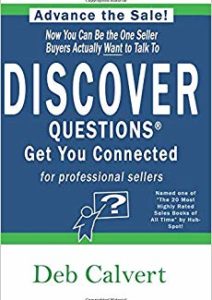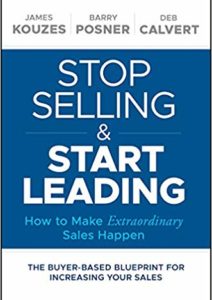It happens more often than you think – sellers miss buyer signals and sales are lost. Here’s how to avoid letting that happen to you.
First, remember that buyers have a process for buying, just like sellers have a sales process. When the buying and selling processes line up neatly, everyone feels good about the transaction and about the relationship.
Sometimes, though, things aren’t quite so neat. Usually, this misalignment happens when a seller gets ahead of a buyer – for example, trying to close the sale before the buyer is ready to take action. There’s another way that misalignment can happen, though. Sometimes, the buyer is ahead of the seller. The seller misses clear buying signals because he or she doesn’t think it’s the right time to close the sale.
The unfortunate result of sellers not selling at that moment of buyer readiness? Buyers change their minds. They get “unsold” when sellers belabor the process or don’t seem fully confident in their products or services. After a transaction like this, buyers are left feeling both confused and relieved – confused because the seller didn’t sell and relieved because they believe there must have been something they missed, a reason the seller didn’t close the deal.
When I observe this on a sales call and debrief the seller after the call, the most common reaction is surprise. Sellers are not aware that there was a buying signal given. Oftentimes, the buying signal is misunderstood. Sellers often think that buying signals, especially early ones, are objections.
Give yourself a quick assessment. Regardless of where they come up in the sales process or how they are said, consider the five following responses from a buyer. Which ones do you think are buying signals? Which ones are more likely to be objections?
- Can you work with me on the price?
- Is that the best you can do on the cost?
- That’s just too expensive.
- Our current supplier gives us a deal.
- I’d take it at a 10% discount.
All of these are expressions of interest. We don’t talk about price unless we are at least mildly interested in a product or service. Mentally, we don’t take the time to evaluate whether or not we can afford something unless we are considering a purchase. It might be a quick mental calculation, but the buyer’s process always goes in this order:
- Awareness
- Interest
- Desire
- Action
So a question or comment about price is at the stage of interest. Price considerations may suppress the desire and prevent the action of buying. As a seller, though, you need to understand that there is some element of interest because that gives you something to work with.
When it’s an objection, you’d handle this in a way that magnified desire by looking through the lens of value. Rather than focusing exclusively on price, you’d figure out what else is in this particular buyer’s value equation – what personalized benefits can they realize from your product or service?
The problem is that overreacting to the price objection takes the focus off the interest that’s been expressed and may overlook all the other aspects of value. Sellers accidentally minimize a buyer’s interest when they make the whole conversation about price alone. Maybe you’ve experienced this – the buyer brings up price, you reduce the price, and they still say “no.” Why? Because price alone didn’t build on interest and create desire.
Step 1, then, is recognizing an expression of interest. Next is the determination about whether this is a buying signal that indicates the buyer is considering an action or whether it’s an objection that is preventing the buyer’s desire from intensifying.
In general, when there is a question posed it is more likely to be a buying signal. Statements that sound factual (the buyer believes them to be true) are more likely to be objections.
If a buyer asks “is that he best you can do on cost?” it is a strong indication of an action being considered. But if the buyer says “that’s just too expensive” then you know you have work to do on magnifying the value.
When you are dealing with a buying signal, your response should be focused on advancing to the close. When it’s an objection, your response should be to return the conversation to the value that trumps cost (everyone values something more than price – your needs assessment can reveal that primary value). In other words, slow down with an objection and speed up with a buying signal.
If you are not sure which one you’re dealing with, try this simple technique. Ask the buyer to tell you more. Say simply “Tell me more about that.”
You’ll get one of two things in response to this question – a green light with exactly what you need to do to close (e.g. “Well, I like what you’ve offered but I’m hoping you can come down on a price…”) or a yellow light to proceed with caution through the detour back to value (e.g. “Your prices are higher than anyone else’s… I can’t spend that kind of money.”)
With that kind of clarity, you’ll respond in alignment with the buyer’s process and stay on track.






Comments